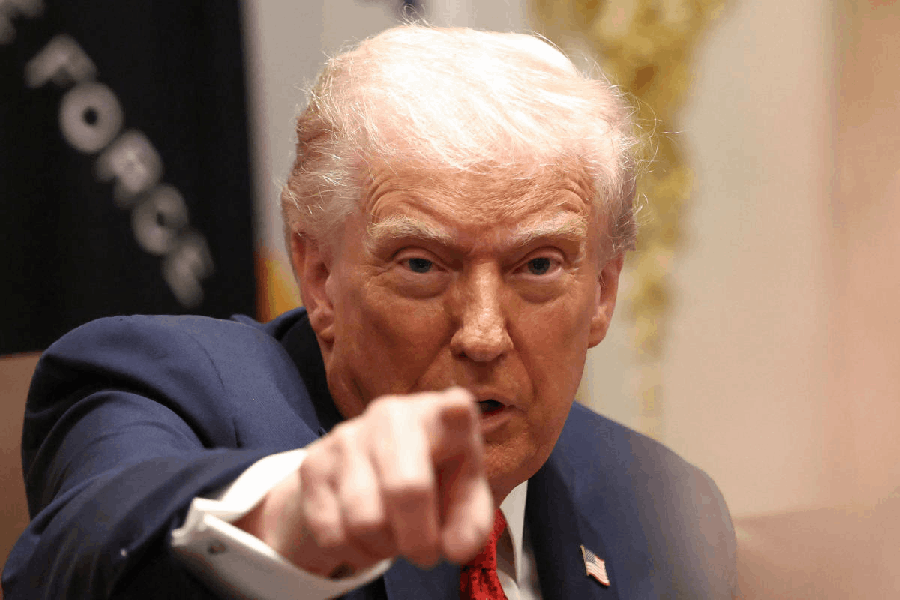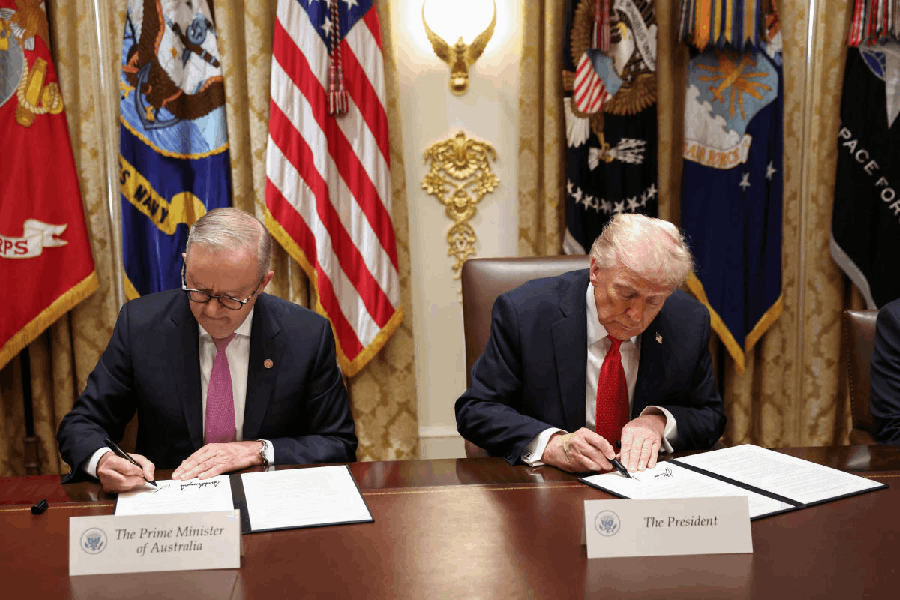US President Donald Trump on Monday warned China of sharply increased tariffs if a fair trade agreement is not reached with President Xi Jinping by November 1.
Speaking at a meeting with Australian Prime Minister Anthony Albanese at the White House, Trump said the United States would impose a 155 per cent tariff on Chinese goods if negotiations fail.
“They threatened us with rare earths, and I threatened them with tariffs, but I could also threaten them with many other things, like airplanes,” Trump said.
He noted that China is already paying tariffs amounting to 55 per cent, which could rise significantly unless an agreement is reached.
Trump emphasized that his priority is to secure a “fair” trade deal with China and expressed optimism that such an agreement would be “an exciting development for all involved.”
He also highlighted the substantial revenue generated from existing tariffs, saying he would be willing to reduce them if China offers reciprocal concessions.
The President recalled that during his first term, China paid considerable amounts in tariffs, acknowledging that sustaining such payments could be difficult for Beijing.
However, he reiterated his readiness to negotiate lower rates in exchange for mutual trade benefits.
Trump declined to comment on whether he would compromise US support for Taiwan as part of any deal with Xi.
“I want to be good to China. I love my relationship with President Xi. We have a great relationship,” he told reporters.
He announced that he has accepted Beijing’s invitation to visit China early next year.
“I’ve been invited to go to China, and I’ll be doing that sometime fairly early next year. We have it sort of set,” he said.
When asked about a Pentagon assessment suggesting that Xi Jinping could attempt to seize Taiwan by 2027, Trump expressed confidence in his relationship with the Chinese leader.
“I think we’ll be just fine with China. China doesn’t want to do that,” he said.
“Now that doesn’t mean it’s not the apple of his eye, because probably it is, but I don’t see anything happening,” Trump added, referring to Xi’s ambitions regarding Taiwan.
While stopping short of saying he would authorize the use of force to defend Taiwan, Trump maintained that China understands America’s military strength.
“The United States is the strongest military power in the world by far. We have the best of everything and nobody is going to mess with that...I think we'll end up with a very strong trade deal. Both of us will be happy,” he said.
Trump will meet Xi later this month in South Korea during an Asia-Pacific summit, marking their first meeting since Trump began his second term.
The United States officially recognizes only Beijing and not Taipei, where China’s defeated nationalists retreated in 1949 after the civil war and which has since evolved into a vibrant democracy and technology hub.
Under US law, Washington is required to supply Taiwan with defensive weapons but remains deliberately ambiguous about whether it would use force to defend the island.
Trump’s predecessor Joe Biden had previously indicated he would order military intervention if China attempted to move on Taiwan.
With inputs from Reuters











